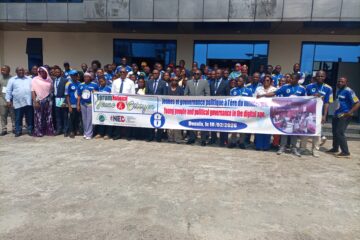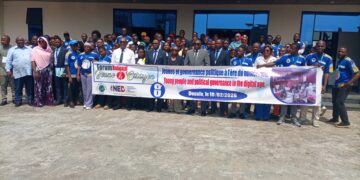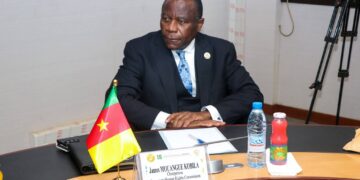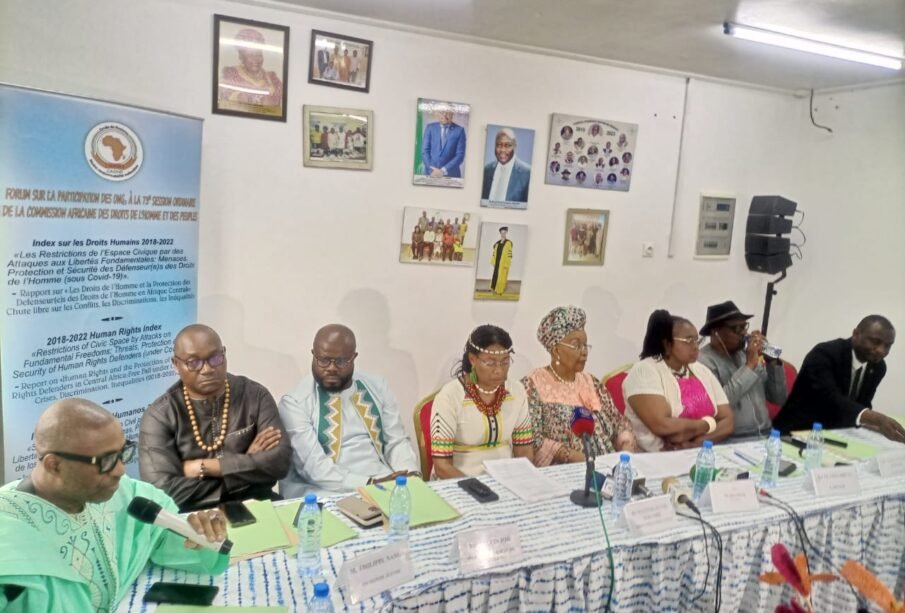
PLATFORM FOR THE RULE OF LAW IN CAMEROON SET UP BY REDHAC
Press Conference against Torture and Other Cruel Treatment or Punishment, Inhuman or degrading was organized tuesday, October 29, 2024 at the headquarters of REDHAC.
INTRODUCTORY REMARKS
” Ladies and gentlemen, journalists, dear colleagues and friends,
At the International level (UN)
– On 19 December 1986, Cameroon ratified the Convention against Torture and Other Cruel, Inhuman and Degrading Treatment or Punishment.
– On 15 December 2009, it signed the Optional Protocol to the Convention against Torture and Other Cruel, Inhuman or Degrading Treatment or Punishment.
– On 14 October 2000, Cameroon accepted the individual complaint procedures for violations of the rights contained in the Convention against Torture.
– On 19 December 1986, Cameroon also accepted the investigation procedures in accordance with Art. 20 of the CAT.
At the Regional, level (AU-ACHPR)
– Since 1981, Article 5 of the African Charter on Human and Peoples’ Rights prohibits all forms of torture.
– In October 2002, the ACHPR adopted a resolution on guidelines and measures for the prohibition and prevention of torture and other cruel, inhuman or degrading treatment or punishment in Africa. As a reminder, Cameroon is a signatory of the African Charter and a member of the United Nations. As such, it has the obligation to respect all instruments freely signed and/or ratified.
However, for more than 02 decades, with impunity, some security forces and other services have implemented recurrent practices of torture and other cruel, inhuman and degrading treatment.
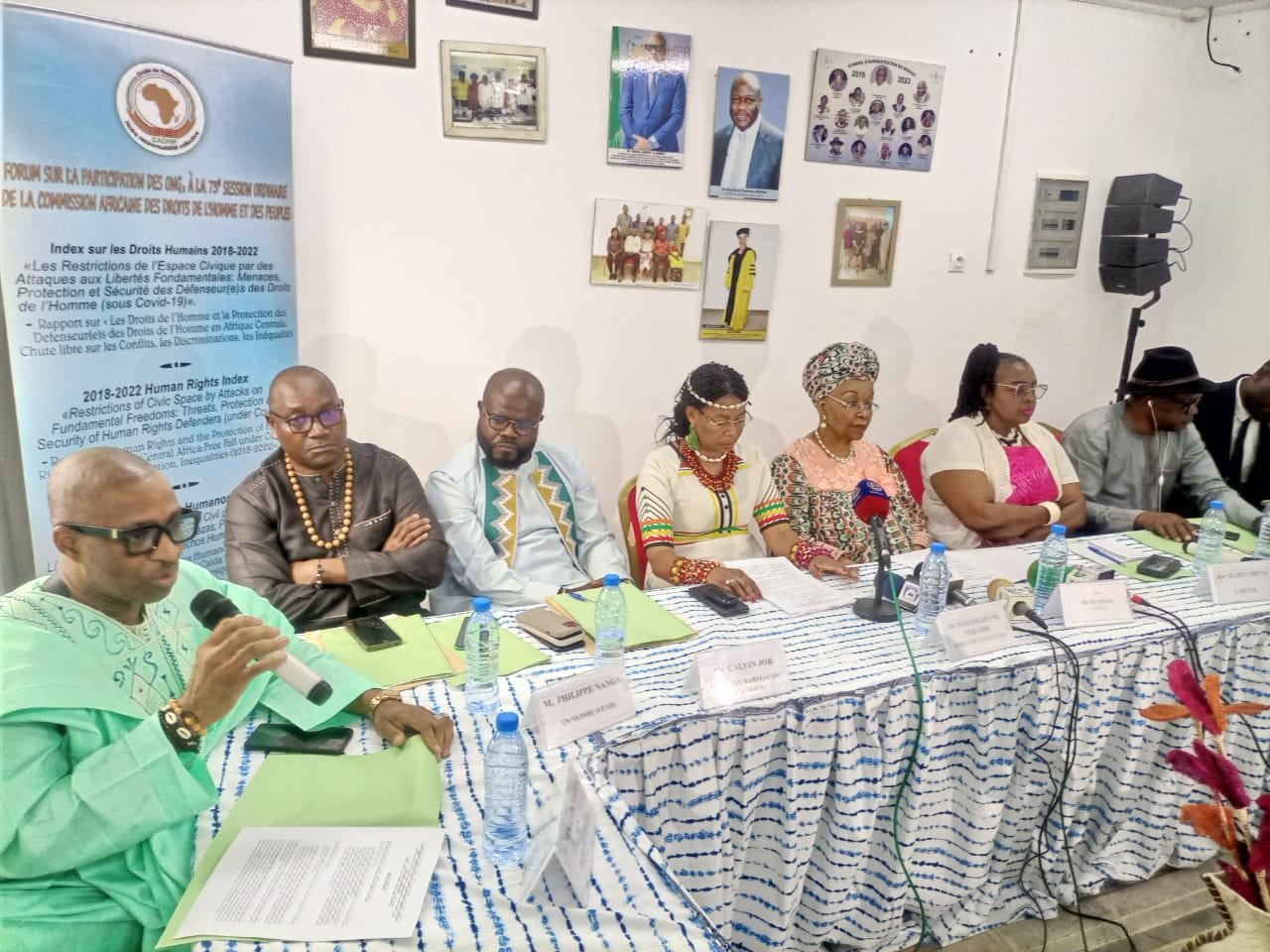
The case of Mr. Longkana Agno Simon, known as Longuè Longuè, which has been in the news for a week, is only illustrative and gives us an opportunity to make available to the international, national and regional community by asking in particular the Chairperson of the African Commission, Prof. Rémy NGOY LUMBU, Commissioner in charge of Cameroon, to the Special Rapporteur on Torture, Commissioner Hatem ESSAIEM, to the UN Special Rapporteur on Torture Alice Jill EDWARDS to take all urgent measures to put an end to these systemic practices that do not honor Cameroon.
Some security forces who have set up these practices as rules, have paralyzed the victims, to the point where they have imposed silence on the victims, on the populations, including those who must raise the loudest voices as if to say: “If you open it, you will see!” How can we continue to accept that we are dying slowly, just because our rights to freedom of opinion, expression, association or assembly are being severely tested by the very people who are supposed to protect them? How can we continue to live with this impunity? Even if we welcome the opening of the investigation by the Ministry of Defense, we remember that investigations close as soon as they are opened and even when they have gone to the end, only the executors get away with the minor sentences while the instigators are either promoted or kept in their posts. We take the same ones and start again!
If during the post-colonial period, we have read in history these practices about the UPCists (Boum Jean Pierre, Rose Nzie, Louka Basile, Mendomo Elisabeth, Ndema Alexis; Tchindji Kouleu…), it must be said that cases of torture, or other inhuman or degrading treatment and punishment multiplied between 1991 and 1993 with “a certain national spanking” for the militants of the multiparty system, we can mention a few names: (Pius Njawe, Mboua Massock, Séverin Tchounkeu, Henriette Ekwe, Anicet Ekane, Me Yondo Mandengue Black, Albert Mukong, Hameni Bialeu, Jean Jacques Ekindi, Samuel Eboua, Charles Tchoungang, Essaka, Cyprian Tanwie Ndifor, …) Then, we, the pupils and students who followed in the footsteps of these elders at that time, had paid a heavy price.
In 2008, the youth of all stripes came to fight against the high cost of living and the modification of the constitution, led by the singer Lapiro de Mbanga. The list remains non-exhaustive.
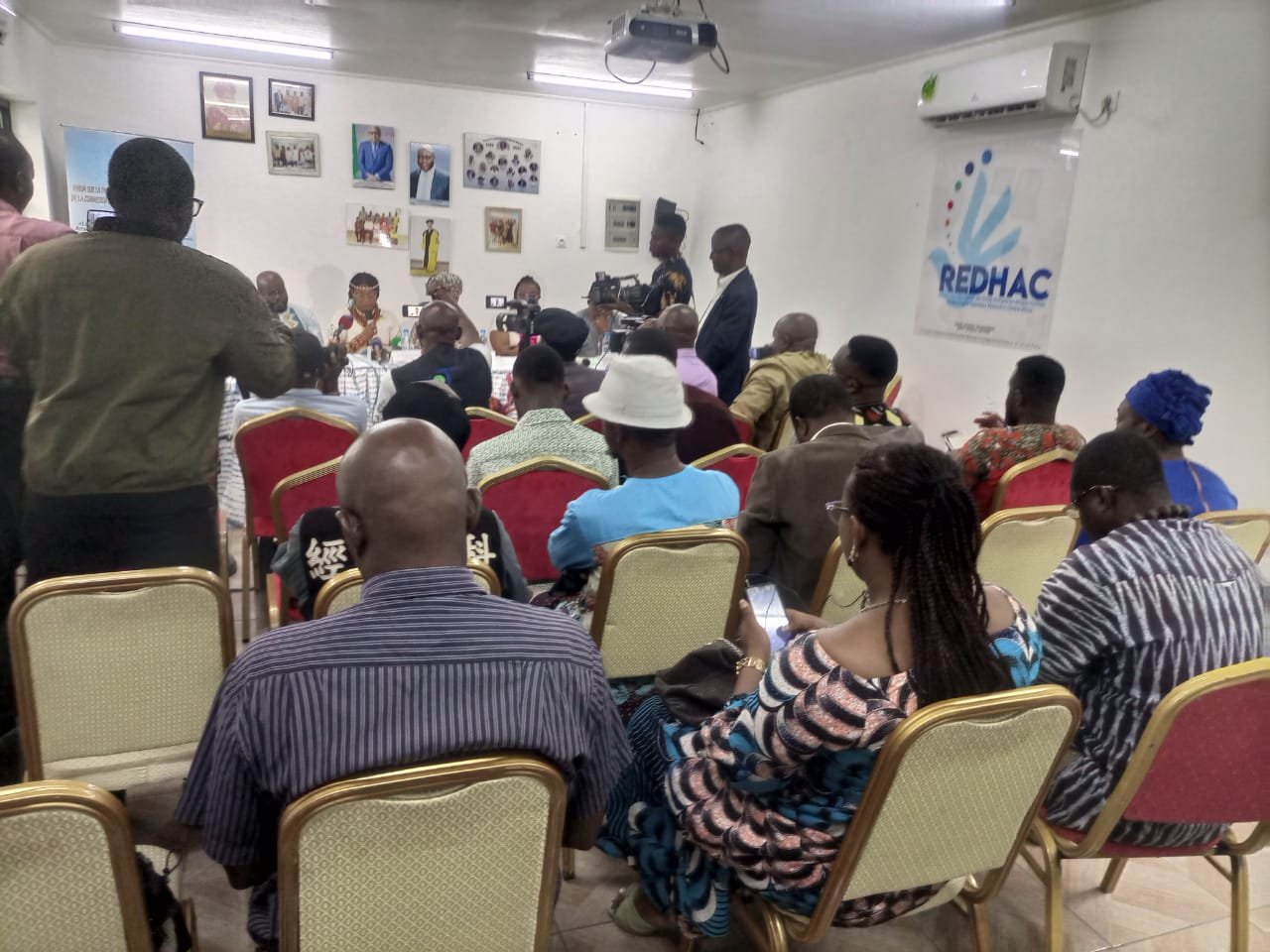
Unfortunately, the Secretary of State for Defense (SED), the Military Security (SEMIL), including the General Directorate of External Research (DGRE) have become the gas chambers. Let’s discover together the horror since only the war in the English-speaking regions of the North-West and South-West 2016, the 2013 Boko Haram terrorist attacks and the 2018 post-election crisis. These practices have not only intensified, but are filmed with their faces uncovered, shared as if to warn: “the BIG MOUTHS!”
GENERALIZED IMPUNITY: The Secretary of State for Defense (SED), the General Delegation for External Research and Military Security (SEMIL) have become chambers of physical torture, other intelligence services exercise moral torture. It is good to note that the Cameroonian police are less concerned by these practices which have become systemic and recurrent, even if there are a few blunders here and there. We encourage him to maintain this posture. To illustrate what is said above, you can make up your own mind with the cases listed below: the list is not exhaustive
– Yaoundé 02 August 2019-NOSO: Samuel WAZIZI (journalist tortured and body disappeared to date)
– Yaoundé, on 26 June 2020, journalist Ernest OBAMA, inhuman and degrading treatment during his arrest;
– Yaoundé – September 22, 2020: Polycarpe Essomba, tortured by elements of the Gendarmerie and police in Yaoundé) – Touboro – 05 December 2013: Célestin Yandal, tortured by elements of the Ngaoundéré territorial brigade);
– Yaoundé – 09 August 2014: Aboubakar Siddiki, arrested in Douala, hooded and tortured in Yaoundé at the DGRE Cachot;
– Yaoundé – 27 August 2014: Mr. Harissou, Notary, Deported from Maroua and tortured at the DGRE;
– Douala, November 07, 2018: Mimi Mefo, a journalist for Équinoxe TV, was tortured at the Douala Military Court and charged with endangering state security;
– Yaoundé – November 21, 2016: BBX Mancho (tortured at the SED)
– Yaoundé – July 26, 2019 : Mamadou MOTA (tortured at the SED)
– Yaoundé, April 17, 2020, Sébastien EBALA) (arrested and tortured by SEMIL)
– Yaoundé – September 20, 2021) Dr. Fridolin NKE (Tortured at the SED)
– Ngaoundéré-24/03/2024: Jadowa Babajo: artist engaged in Adamawa, tortured at the Semil of Ngaoundéré tortured in the dungeon for 4 months);
– (Yaoundé- on the night of March 2022) Paul CHOUTA (tortured by unknown elements)
– (Ngombe Junior (arrested, tortured and deported by the SED to Yaoundé
– Steeve Akame alias Ramond Cotta (deported in violation of the rules, tortured at the SED and now placed under a detention warrant at the main prion of Kondengui
– (Douala-04 August 2012): Pauline Poinsier Manyinga (arrested by the Bonanjo Gendarmerie, tortured to death
– Yaoundé, 22 September 2020): Tchoupo Alvine: tortured at the SED for exercising her rights to freedom of assembly and demonstration;
– Douala-May 29, 2023: Fabien Kengne (kidnapped and tortured by Semil)
– Douala, January 26, 2019: Michelle Ndoki is tortured and imprisoned in Kondengui;
– (Douala, October 19, 2020 Salomon Beas is tortured and thrown into New-Bell prison)
– Douala-28 January 2019: Célestin Njamen (tortured and thrown in prison in Kondengui)
The women of the NOSO are not to be outdone. They are the most tortured, because no one talks about it, especially since very often, it is moral and psychological torture and arbitrary arrests. We have 4 cases:
– Mama NJEI Cecilia, 65 years old, who has been in prison since September 2023. Since then, she has been subjected to inhuman and degrading treatment;
– Abongeh Elisabeth, mother of 4 children and was 5 months pregnant at the time of her arrest. She gave birth in prison. She is subjected to moral torture and other inhuman and degrading treatment;
– Nene Daylyda, a mother of 3 children, is arrested and tortured with her three-month-old baby. Today, the baby and the mother have 7 months in prison. What did the baby do to deserve these acts of torture and other inhuman and degrading treatment?

– 4. Bih Marnet: a young woman with 3 children experienced the same torture
All 4 are detained in the main prison of Bamenda and were able to have a lawyer of circumstance out of pity last week when they were taken to court. In conclusion, we remind the State of Cameroon to take ownership and implement the Guidelines and Measures for the Prohibition and Prevention of Torture and Cruel, Inhuman or Degrading Treatment or Punishment in Africa (Robben Island Guidelines) as follows.
Criminalization
1. States should ensure that acts of torture, as defined in Article 1 of the Convention against Torture, are offences under their national legislation.
2. States should pay particular attention to the prohibition and prevention of forms of torture and gender-related ill-treatment as well as torture and illtreatment of children.
3. National courts should have jurisdiction to hear cases of alleged torture in accordance with Article 5 (2) of the Convention against Torture
4. No exceptional circumstances, such as a state of war or threat of war, political instability within the country or any other public emergency, may be invoked to justify torture or cruel, inhuman or degrading treatment or punishment.
5. Concepts such as state of necessity, national emergency, public order and “public order” may not be invoked to justify torture or cruel, inhuman or degrading treatment or punishment.
6. A superior officer’s order may never constitute a legal justification or excuse for cases of torture or cruel, inhuman or degrading treatment or punishment.
7. Any person found guilty of acts of torture shall be subject to appropriate punishments commensurate with the gravity of the offence and applied in accordance with relevant international standards.
8. No one shall be punished for disobeying an order to commit acts amounting to torture and cruel, inhuman or degrading treatment or punishment;
9. States should prohibit and prevent the use, manufacture and trade of devices or substances intended for the practice of torture or ill-treatment, as well as the misuse of any other device.
B. Non-repression
10. States should ensure that no one is expelled or extradited to another State where there is a serious risk that he or she would be subjected to torture.
E. Fight against impunity
11. In order to combat impunity, States should:
12. Take steps to ensure that those responsible for acts of torture or ill-treatment are prosecuted;
The Rule of Law Platform and REDHAC demand that Cameroon agree to an independent fact-finding mission (UN-ACHPR) into all the allegations of torture cited in this and other unnamed documents so that the masterminds can be prosecuted. The Platform, through its lawyers, will refer the matter to international mechanisms for individual cases that will give their consent to this effect.
Finally, the Platform, which was solicited by the victim Longue Longue through Me Alice Nkom, one of the Coordinators of the volunteer lawyers, asks all the lawyers who are members of the platform to get closer to REDHAC for their constitution for the file, but also for the global actions of all the cases mentioned. “



